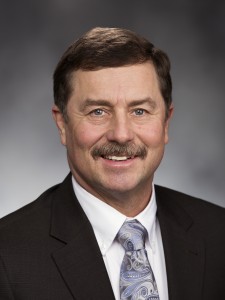For the last year our colleagues on the other side of the aisle have been saying we can’t avoid a tax increase — a head-bobbing consensus that seems to have been taken by many as conventional wisdom. Then we came out with our budget proposal in the state Senate and showed them there is another way, again, just like we said we would, for the third year in a row. I think it has left more than a few people wondering — how can it be?
So many people seemed to hope things would be different this time. They argued a crisis is a terrible thing to waste and tried to sell the idea we ought to “soak the rich” and “make the polluters pay.” Once you looked behind the slogans, of course, you could see that a capital gains tax was a great way to chase away the tech industry, and more likely would be a Trojan Horse for a statewide income tax. And by taxing “polluters” we really would be taxing anyone who drives a car and heats their home – meaning just about all of us.
It might have been a nice argument to have, but this debate never really got started because the other side never got behind a particular proposal. Our Democratic colleagues in the House have proposed a budget that would require a $1.5 billion tax increase. Since they aren’t planning to pass their tax bill at any point in the near future, we can assume they really don’t have the votes to pass it, and the proposal is a wishful negotiating position based on a phantom budget.
Instead we see strange spectacles like the press conference the governor held Wednesday, in which he argued that the Senate ought to see the light and raise taxes to achieve political ends – as if this is something we ought to do for its own sake.
We never started with these assumptions. Instead we wanted to write the best budget we could with the resources we had available, and I think most people would agree we’ve done the job. Our proposal presents an enormous middle-class tax cut, in the form of a 25 percent tuition reduction at the state’s colleges and universities. We preserve the safety net and fully fund basic education. We give pay raises to teachers and state employees – and we give the biggest percentage increases to those on the low end of the scale, the ones who need it the most. And we leave a prudent reserve in the bank, $500 million, plus another $900 million in the state rainy-day account.
We recognize that our biggest challenge is really an opportunity. The state Supreme Court’s McCleary decision, directing us to spend more on basic education, ought to be taken as a scolding for the way the Legislature has allowed our schools to slip. For every dollar that went to education over the last 30 years, other programs got two. Our budget reverses that – education gets three dollars for every one dollar that goes elsewhere, and we go far beyond the Supreme Court’s goals, boosting higher education and preschool as well as K-12.
The fact we pulled this off shouldn’t surprise anyone outside the Legislature. We have $3 billion more to spend than we did the last time we wrote a budget, simply because the state’s economy is growing and generating more tax money. We found another $1 billion or so within existing resources, without using any of those accounting maneuvers it takes a CPA to explain. Most people would say $4 billion is more than enough – we ought to be able to squeeze by.
But Olympia is a funny place. I get the idea we must have disappointed some people. Flouting conventional wisdom? Again? I suspect the rest of the state will see our proposal for what it is – the framework for success this year and for the future.
Mark Schoesler is the leader of the Senate Majority Coalition Caucus.









